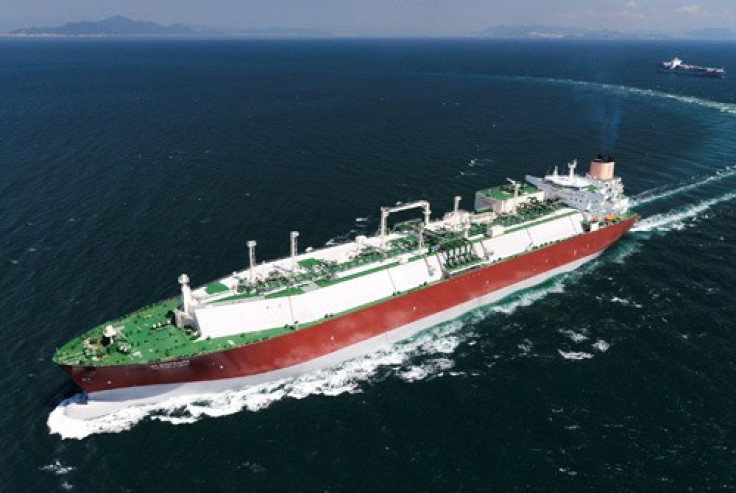IBT1000: Nakilat Shippers of the World's Natural Gas

War's shadow looms over the Strait of Hormuz, and for a certain Qatari company that happens to be one of the world's fastest growing company, the disruption of shipping traffic through the strait could end its meteoric rise, if not its existence.
Qatar Gas Transport Company Ldt, or Nakilat, is a natural gas shipping company based in Doha, Qatar. The company transports natural gas via huge tankers throughout the world. The company has 25 wholly owned and 29 jointly owned Liquefied Natural Gas carriers and four jointly owned Liquefied Petroleum Gas ships.
In all, the ships represent roughly $11 billion in investments for the company, which has benefitted immensely from Qatar's enormous natural gas resources.
One benefit has been growing fast enough over three years, 2009 through 2011, that it gets a spot on the IBTimes1000, a proprietary list created by the International Business Times of the top 1,000 fastest growing companies in the world. The list ranks those publicly traded companies that have achieved the fastest compound average growth rate over three years.
Nakilat was founded in 2004 with the goal of becoming the world's largest natural gas carrier. While the company ships LNG, it also has interests in ship repairs and docks for LNG transporters. The company also charters tankers.
In a way, the company acts as a supply branch to Qatar's petroleum and natural gas industries. Its carriers are built in South Korea and Nakilat is partially owned by Qatar Petroleum, Qatargsa and RasGas.
By 2006, the company forged more than a dozen joint ventures with other shipping companies across the world and has propelled itself to be one of the fastest growing companies in the world.
[Nakilat] is one of the largest integrated industrial holding companies in Qatar and the [Cooperation Council for the Arab States of the Gulf]. The company's original flotation was one of the largest and most successful IPO's in our country's history, said Abdullah bin Hamad Al-Attiyah, company chairman and Qatari minister of energy and industry, in his first company address.
The company's stock is split evenly between its founding members and the public. It is publically traded on the Qatar Stock Exchange.
With the floatation of the company on the Doha Securities Market in April 2005, we aimed at creating a low risk investment opportunity for the Qatari public, Attiyah said in his address. Natural gas is no longer simply an environmentally-friendly form of energy - it has now become a major and integral part of Qatar's economic strategy. Nakilat is therefore a key element in the development of the country.
In 2008, the company generated $66.5 million in revenue. As the company grew, it was able to increase its ship count. Lifted by high global demand for natural gas and oil, the company's revenue soared to close to $930 million by 2011. That's a 140 percent compounded average three-year growth rate.
In 2009, the company was trading and supplying the United States, the United Kingdom, France, China, Spain, Italy, Mexico, Thailand, Belgium, the United Arab Emirates, Taiwan, South Korea and India with natural gas.
But what if the Strait gets disrupted? As is, it's the only shipping channel in the region with which Nakilat and the majority of the world's oil and natural gas suppliers, use to trade with the rest of the world. Nakilat will find itself completely cut off.
The economy will be in shambles -- Saudi Arabia will suffocate, Qatar will suffocate, Kuwait will suffocate, said Fadel Gheit, an energy analyst with Oppenheimer.
And with them, so would Nakilat, when the global economy turns from recession to depression.
Deloitte and Touche, a financial advisory and risk management service company that independently audits the company's financial statements refused to comment. Nakilat, based in Doha, Qatar, could not be reached for comment.
Although a January Congressional Research Service report highlighted the low probability of Iran disrupting ship traffic in the Strait, a military response from the United States is almost certain if Iran does try to constrict its flow.
We must have communicated in so many different languages that there is going to be a line that Iran cannot cross, Gheit said.
Michael Jones, Markets Editor for IHS Fairplay, a maritime extension of IHS, a global information company, said the closure of the Strait will hurt regional economies, but that depending on the time during which the Strait is closed, countries in the region including Qatar and Saudi Arabia will be able to hold out.
That will be quite a hardship for them, Jones said. But they have cash reserves and would have the ability to weather this.
In Thursday trading, Nakilat was up three cents to $4.76.
© Copyright IBTimes 2024. All rights reserved.











